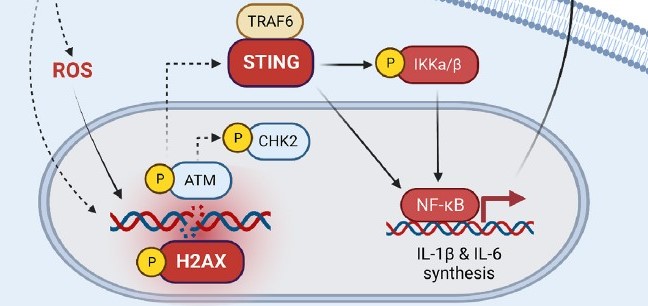Inhibiting Deadly Enzyme Could Heal Immune Disorders
Research By: Kasper Hoebe, PhD
Post Date: June 30, 2019 | Publish Date: Jan. 30, 2018

Scientists here discovered how a gene mutation causes immune disorders, and used their discovery to test a treatment that repaired immune cells donated by a 16-year-old boy with lymphopenia.
Researchers reported their findings Jan. 30, 2018, in Nature Communications. The discovery centered on a mutation in the gene Gimap5, important to healthy formation and function of infection-fighting T-cells. The mutation renders Gimap5 unable to hamper the troublesome enzyme GSK3β, which causes T-cells to malfunction and die.
The researchers tested drugs to inhibit GSK3β in mice and human blood cells. They boosted immune system function in mice and restored normal T-cell function in the human cells. GSK3 inhibitors already are used to treat Alzheimer’s, mood disorders and diabetes mellitus.
Experiments are underway to translate the findings into the clinic, says Kasper Hoebe, PhD, Division of Immunobiology, who led the study. “We believe the use of GSK3 inhibitors to prevent or correct these type of immune-related diseases holds great potential.”
| Original title: | Gimap5-dependent inactivation of GSK3β is required for CD4+ T cell homeostasis and prevention of immune pathology |
| Published in: | Nature Communications |
| Publish date: | Jan. 30, 2018 |
Research By







